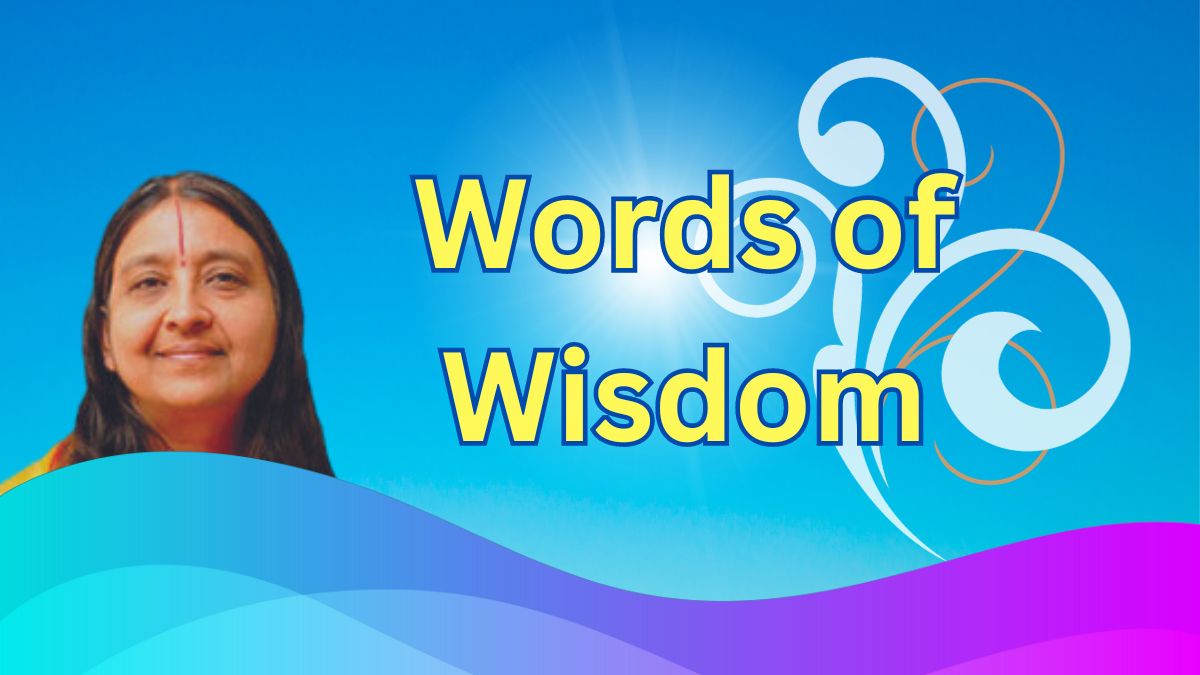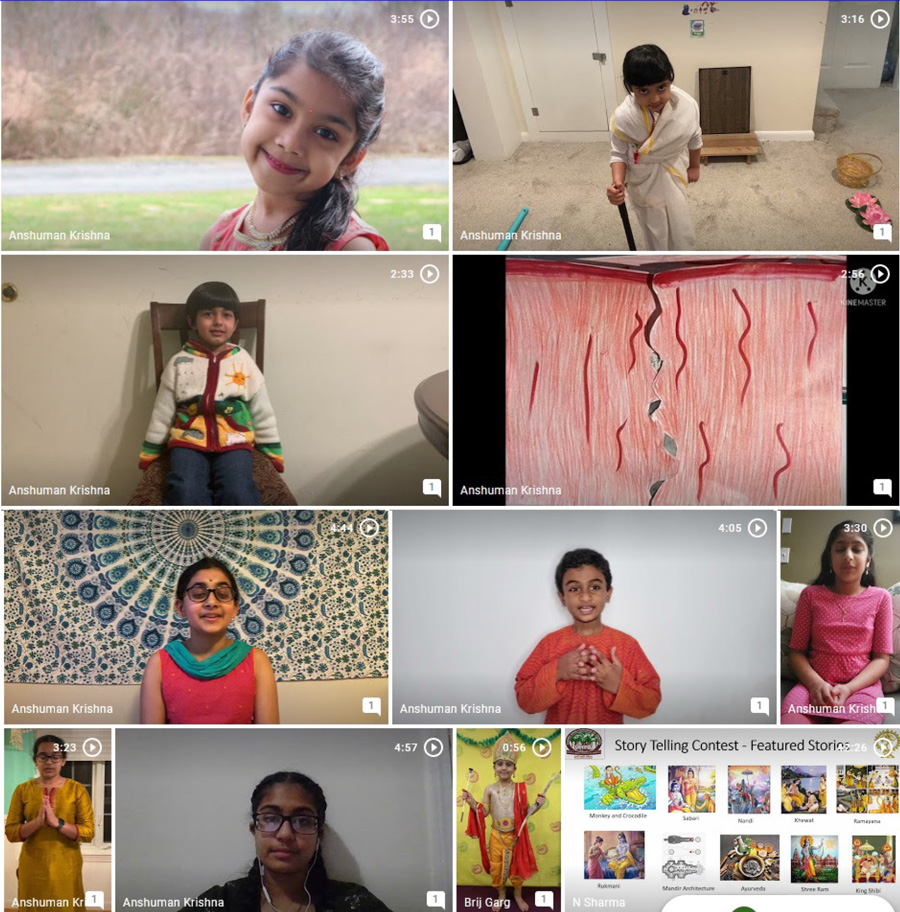Question & Answer Session

Q: If there are many gurus who are God realized, how do you know that the Jagadguru is the best one of them all? As far as I understand, this is only based on a human’s judgement of their knowledge level.
A: It is true that the scholars who selected Jagadguru Shri Kripalu Ji Maharaj as Jagadguru were all human, albeit extremely knowledgeable ones. These humans were inspired by God to choose a divine personality as Jagadguru, proving that God has a way of getting great things accomplished by mortals.
Moreover, the 500 scholars of Kashi Vidvat Parishad combined had a formidable knowledge of scriptures, and although they were not divine, yet their scriptural knowledge plus a careful background check on Shri Maharaj Ji (never having had studied scriptures, never having had a Guru) guided them to recognize him as the best of all Gurus, a Jagadguru. As I said before, God has a unique way of getting great things accomplished by mortals.
Q: If you end up becoming a pet in your next life, does that mean you had better karm (you would be well-fed, pampered, live longer, etc.)? Or does being a wild animal mean you had better karm since you still have your freedom?
A: Just as there are differences in humans in matters of the family one is born in and whether one is born in poverty or in a financially sound family, likewise animals are born in different situations. Just because it’s a pet, it doesn’t mean that the animal is necessarily pampered. Many are abused and abandoned. And just because the animal is in the wild, it doesn’t mean that it is necessarily deprived of food. You would have to look at the entire situation. It could be that the pet is better off, or it could be that the animal in the wilderness is better off.
Q: How would you explain the pandemic in terms of souls dying in such great numbers? Is God taking away these lives because all of their time is up? Is there an explanation to these mass death events, like the Holocaust, wars, etc.?
A: So many people dying at the same time means that the allotted time was up for all of them. There is no such thing as collective destiny. Their individual destiny led them to be in the same place at the same time, or in the same situation.
Q: What happens after death?
A: There is no single answer to this question because everyone is an individual who has performed good actions, sinful deeds and acts of devotion in previous lives. When the individual is given fruits of some of his past actions, he may be sent to Svarg lok (celestial abode) for some time and then given birth on the earthly abode; another may be sent to hell and after suffering punishment for some time he may be given birth in one of the 8,400,000 forms of life.
One may be reborn immediately after death in the human form. Another may be given the body of an animal, bird, insect or a tree.
Only God has the file of innumerable actions of infinite souls. As such, only God knows what will happen to the soul after the death of the body.
Q: What can I do to make sure I receive human birth again?
A: Practice selfless devotion to God under the Guru’s guidance and serve God and Guru sincerely.
Q: If Buddha is an avatar of God in Hinduism, why did he create a new religion that deviates from Hinduism?
A: Lord Buddha needed to introduce the genuine interpretation of the Vedas, and the best way He could accomplish this was to take the drastic step of denying the Vedas. He then introduced the philosophy of non-violence to the world, without revealing that this concept was straight out of the Vedas. He did not set out to start a new faith; the ones who followed His teachings came to be known as Buddhists, the followers of Buddha.
Q: If we see an animal in pain, should we put it out of its suffering, or do we not have the right to take a life?
A: We should try to help the animal but if the suffering is too great and there is no cure, then we should ask the vet to do the necessary deed.
Q: If in Hinduism we are vegetarians because every animal has a soul, don’t plants also have souls? Thus, we are still killing to eat. How is this allowed? If the argument is that plants are lesser souls (they had bad karm so they became a plant), then are we allowed to eat bugs (since they are lesser beings than animals)?
A: Plants have the least amount of consciousness of all of God’s creatures, and while we are still killing living beings by consuming plants, yet the least amount of sin is incurred by eating vegetables, fruits and grains. If we don’t eat even plants, we would die.
If you are in a situation where even vegetables are not available and you are forced to eat meat in order to preserve your life, then eating meat would not be considered a sin.
Q: When we offer leaves and flowers to God, do those souls (in that flower or leaf) get blessed?
A: To be blessed, the creature would have to be born human. Only humans receive fruits of their actions.
Q: Do rituals and fasts still give us good karma and forgive our sins (i.e., many believe that bathing in the Ganga River forgives sins)?
A: The only thing we can do that will forgive our sins is sincere devotion. Fasting or bathing in Ganga or some other ritual does not forgive our sins. However, if we are doing Roopdhyan while fasting or taking a dip in the holy water, then we are practicing devotion. And devotion means, ‘loving remembrance of God,’ i.e., Roopdhyan.
Q: If I have a bad thought of ridiculing someone, but I don’t do the action, does the thought of not doing the action cancel it out?
A: It doesn’t cancel it; it diminishes it.
Q: I can do an action without a thought, like killing a spider accidentally while walking, so is that still bad karm if you don’t know you did it?
A: We inadvertently kill many creatures simply by breathing and walking, but we are not committing a sin because it’s not a deliberate act. But, even if you must kill cockroaches or set up a mousetrap in order to live in a hygienic environment, the sin is so small that you are given forgiveness by practicing devotion.
Q: I think getting up early is overrated. Why does my mom always nag me about sleeping in?
A: There is a saying, “Early to bed and early to rise makes a man healthy, wealthy and wise.” If you rise with the sun and sleep early, you are following Nature’s rhythm. By waking early, you will feel that you have more hours in the day to get your work done. Moreover, you are more attentive and productive early in the morning because there are no interruptions at that time. When you wake early, you are not rushing for work or school. You are calmer as a result.
Q: I am also nagged about making my bed in the morning. I don’t make it because I figure I have to sleep in it at night anyway.
A: Making your bed in the morning may seem like a trivial task, but it isn’t. When you make your bed, you have accomplished the first task of the day, which will mentally inspire you to finish another task and then another. It will inspire you to pick up your clothes from the floor and put them in the hamper and move the used cups of coffee from the desk to the kitchen sink.
Another reason is that our mind becomes confused and disturbed by mess and chaos, even though we may not be consciously aware of it. The mind works better if our environment is tidy and well-arranged.
Q: I moved to the U.S. when I was 12. I visit my grandparents in India almost every year and my Hindi improves when I go there. I like my Indian and Hindu heritage but sometimes I get confused between two cultures.
A: You are very fortunate to have access to two cultures, two languages, two different ways of eating, dressing, and thinking. By taking the best from both cultures, you will enrich your life and you will learn so much. I was in the same situation in my teen years and found that I loved the Indian and Hindu culture. I held on to those traditions and values while learning good things from my new environment also.
Q: My parents push me every Sunday to go with them to the temple, but why should I? I went a few times, but I didn’t understand what was going on there.
A: You didn’t start understanding Math, Science, History or English by going to class just a few times or visiting occasionally. You went regularly, and concepts started making sense. Whenever you didn’t understand something, you asked your teacher. You should go regularly to the temple, and you should ask questions. Soon you will start to understand and appreciate what is being taught.
Q: I tend to hold on to things, but I am afraid of becoming a hoarder. I need help.
A: Some of the objects you are holding on to must have a great emotional significance for you, and you don’t wish to discard them. Consider taking photos of these things. This way you can see them whenever you want. After that, donate these things to those who can use them.
There must be other things you are holding on to, thinking you will use them one day. If you haven’t used them for a year, you are not going to use them. Give these away also. There must be things that are broken and beyond repair. It’s best to throw them away.
If you find all this too daunting, get family and friends to assist you. Or hire a professional.



![[ India Today ] Ohio senator JD Vance thanks wife, a Hindu, for helping him find Christian faith](https://hinduvishwa.org/wp-content/uploads/2024/06/us-senator-jd-vance-reveals-how-his-hindu-wife-usha-helped-him-find-his-christian-faith-image-re-272530504-16x9_0-120x86.webp)










